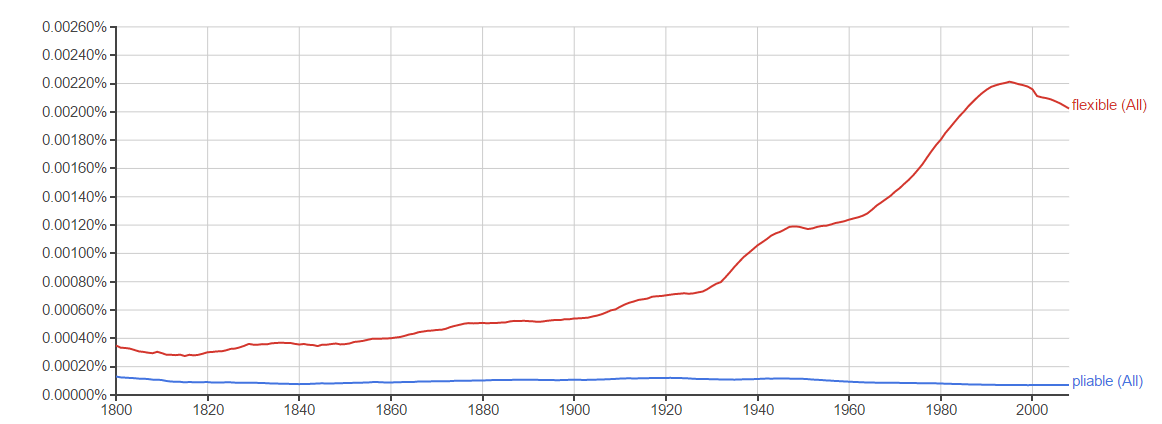While "pliable" seems like it might mean the same thing as "flexible", it adds the nuance, "easily bent by someone or something". The result is that "flexible" is the more common term used in a variety of contexts, and "pliable" is used to refer more specifically to things that are manipulated.
Since "flexible" can mean either the object bends itself easily or can be bent easily, it is the choice for sentences like:
The flexible dancer could put both her feet behind her head.
The software is flexible enough to be useful in a variety of applications.
Meanwhile "pliable" is the better choice to describe the manipulation of materials or objects:
Copper wire is more pliable than fiber-optic and can be easier to use when running cable through tight spaces.
Compared to oak trees, the willow’s branches are pliable, tending to bend gracefully in a strong wind instead of breaking.
Both can be used metaphorically, but note the difference between these two sentences:
The young students' opinions were flexible enough that they would frequently change when presented with contradictory facts.
The young students' opinions were pliable and easily influenced by the images and opinions they saw in popular media.
The first suggests that the students would change their own opinions, while the second suggests that the students' opinions were changed by somebody else. Note that "pliable" doesn't have to be a negative, but since it suggests manipulation it often has negative overtones.
(Edit) "Bendy" is a colloquial term that is roughly equivalent to "flexible". You would not want to use it in any formal writing, but otherwise it can be substituted in any of the above examples. Because it is informal you may want to set it off with quotation marks.
Copper wire is more "bendy" than fiber-optic cable and is good when running cable around tight corners.

